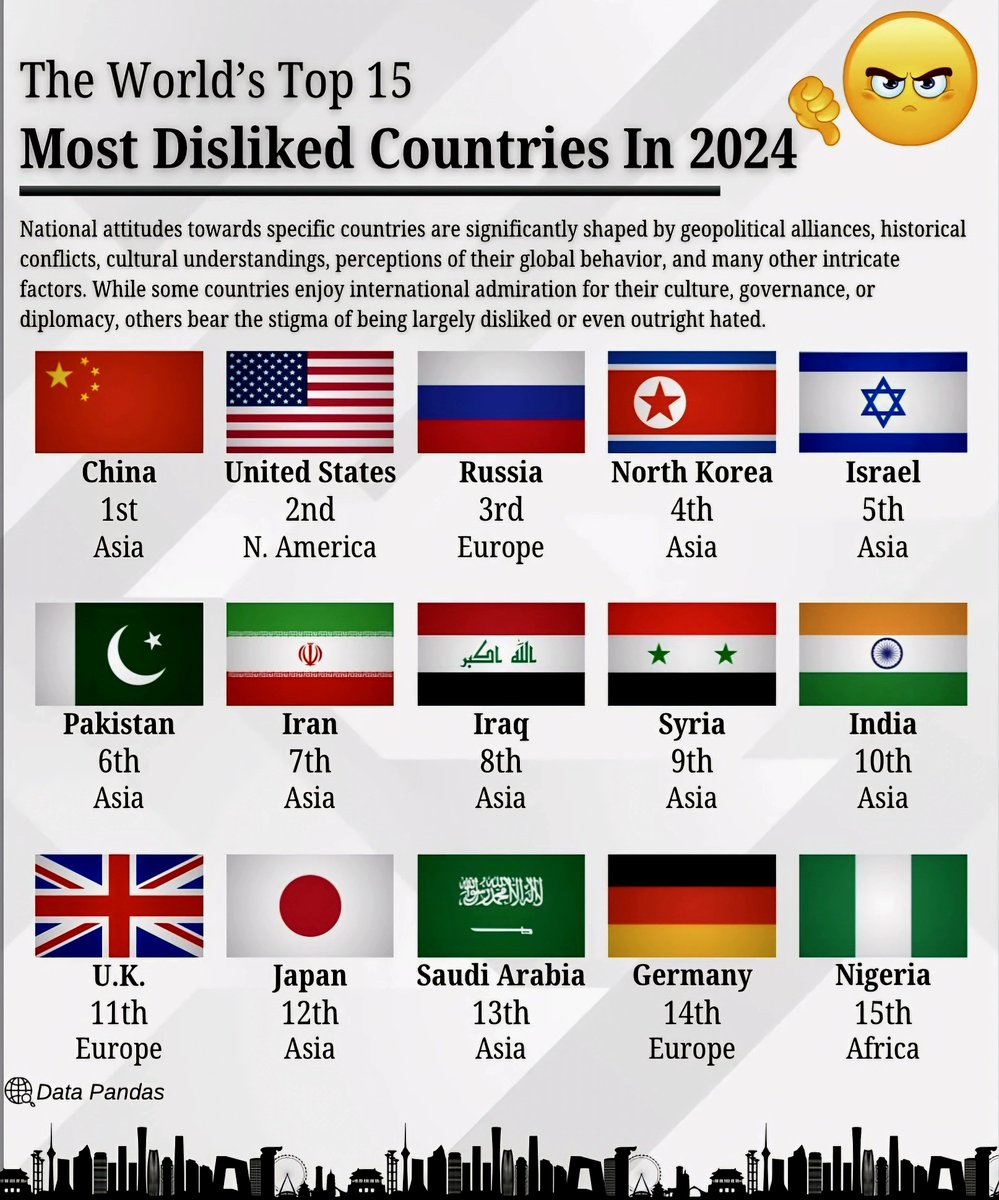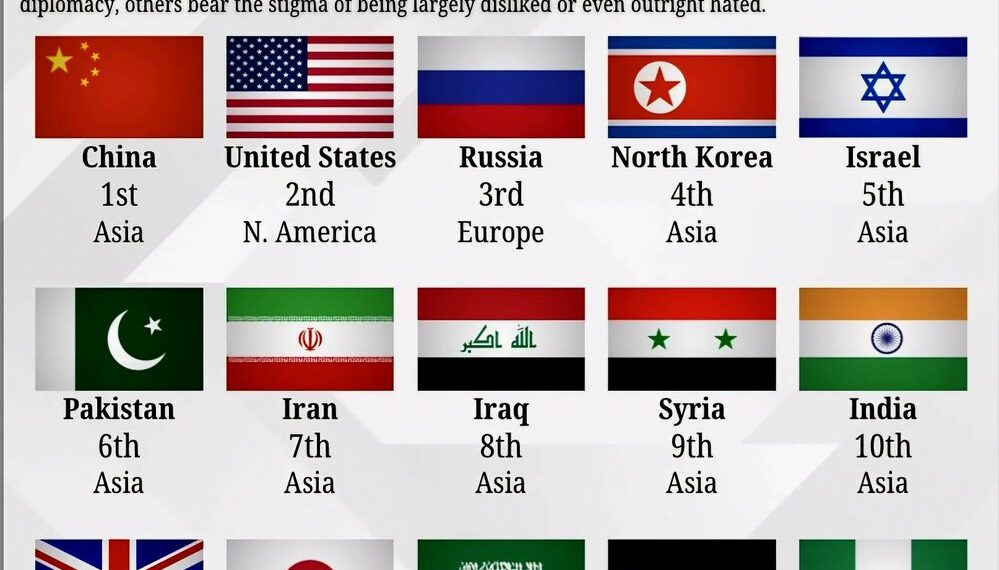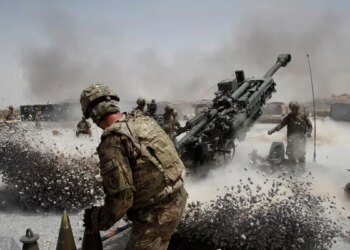Select Language:

The Top 15 Countries Facing the Most Disapproval in 2025
China Continues to Draw Controversy
Despite being a global powerhouse, China remains at the top of the list of most disliked countries. International perceptions are often influenced by concerns over human rights practices, territorial disputes, and economic policies. While many admire China’s rapid development, others voice frustrations over issues like censorship and regional conflicts, contributing to its negative image worldwide.
The United States’ Complex Global Image
The U.S. maintains its position among the most disliked nations. Political polarization, foreign policy decisions, and military interventions continue to influence public opinion. While domestically celebrated for innovation and cultural influence, America’s foreign relations, especially in the Middle East and parts of Asia, stir resentment in many regions.
Russia’s Troubled Reputation
Russia’s ongoing geopolitical tensions, particularly concerning military actions and international sanctions, have deeply affected its reputation. Citizens and governments worldwide associate Russia with aggression and political interference, factors that place it firmly on the dislike list amid global concerns over security and sovereignty.
North Korea’s Pariah Status
Isolationist policies, nuclear developments, and human rights abuses have kept North Korea high on the disliked countries list. Its unpredictable political stance fosters distrust and fear, compounding its international unpopularity.
Concerns Surrounding Israel
Israel’s conflict with Palestine, military operations, and regional disputes continue to influence negative perceptions. While it holds significant cultural and religious importance for many, ongoing tensions in the Middle East shape a largely contentious global opinion.
Persistent Tensions with Pakistan
Historical conflicts, nuclear proliferation concerns, and regional instability contribute to Pakistan’s unfavorability in the eyes of many. Diplomatic strains, especially with neighboring India, often spotlight Pakistan’s geopolitical challenges.
Iran’s International Strain
Iran’s nuclear program, diplomatic disputes, and involvement in regional conflicts have led to widespread skepticism and hostility. Many countries associate Iran with destabilization efforts, impacting its global image negatively.
The Chaos in Iraq
Ongoing conflict, instability, and terrorism in Iraq have tarnished its international reputation. Despite efforts at stabilization, perceptions remain affected by violence and political turmoil.
Syria’s Ongoing Crisis
The Syrian civil war, humanitarian crises, and regional spillovers keep Syria among the most disliked countries. International opinions are shaped largely by the chaos and suffering within its borders.
India’s Mixed Reputation
While India is celebrated for its cultural diversity and economic growth, issues such as internal conflicts, human rights, and corruption in some regions influence its standing. External perceptions vary widely across different parts of the world.
The UK’s Post-Brexit and Political Challenges
Despite its historic influence, the United Kingdom faces skepticism over political decisions like Brexit, as well as ongoing debates about governance and international relations. These concerns impact its global favorability.
Japan’s Defensive Stance and Regional Disputes
Though admired for technological innovation and culture, Japan faces regional tensions in East Asia, which affect its worldwide perceptions. Territorial disputes with neighboring countries often reignite skepticism.
Saudi Arabia’s Reputational Struggles
Linked to human rights issues and abrupt societal changes, Saudi Arabia remains controversial. Its involvement in regional conflicts and energy policies influence public perception negatively.
Germany’s Diplomatic Balancing Act
As Europe’s economic powerhouse, Germany is also scrutinized for its role in European and international politics. Issues like migration policies and military deployments affect its international image.
Nigeria’s Challenges and Resilience
Nigerian instability, corruption, and security issues tarnish its reputation. However, it also garners respect for its rich culture, resilient population, and efforts toward development.
Understanding the Dislike: A Complex Interplay of Factors
Public perceptions of nations are shaped by a myriad of factors—geopolitical alliances, historical conflicts, cultural exchanges, and global behaviors. While some countries enjoy admiration for their cultural exports, governance, or diplomatic efforts, many others contend with stigma and skepticism driven by ongoing conflicts, human rights concerns, or political actions.
As geopolitics continue to evolve in 2025, these perceptions may shift, but the current landscape reflects a world divided over issues spanning human rights, security, and global influence.
Source: Data Pandas







